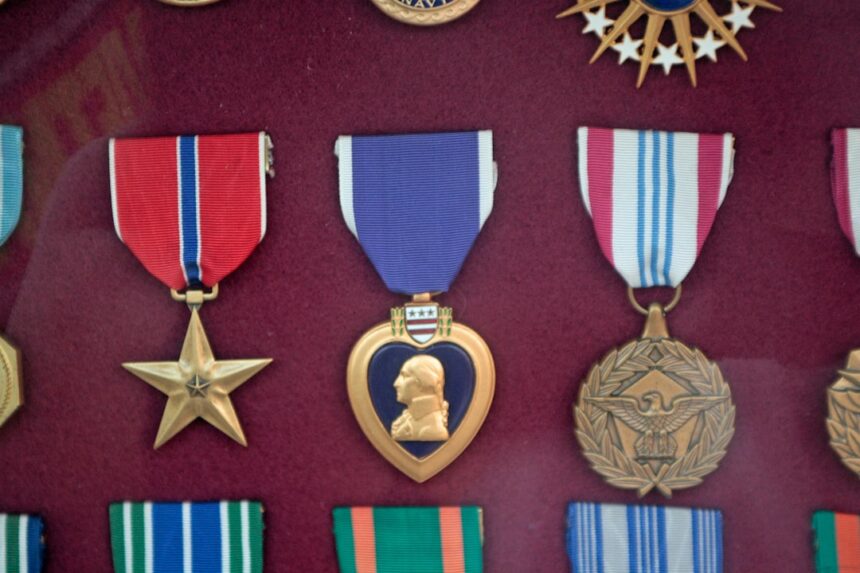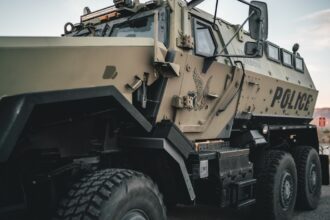The concept of military commissions has deep historical roots, tracing back to the early days of organized warfare. These commissions were established as a means to address offenses committed by military personnel and civilians in times of war, particularly when conventional courts were deemed inadequate. The origins can be found in the need for a legal framework that could swiftly and effectively deal with issues such as espionage, desertion, and other acts that could undermine military operations.
The flexibility of military commissions allowed for a more expedient process, which was crucial during periods of conflict when traditional judicial systems might be overwhelmed or unavailable. In the United States, the foundation for military commissions was laid in the late 18th century, influenced by both British military law and the unique circumstances of the American Revolutionary War. The framers of the U.S.
Constitution recognized the necessity of having a separate legal mechanism for military matters, leading to the establishment of military commissions as a distinct entity within the broader legal system. This duality reflected a balance between civil liberties and the exigencies of national security, a theme that would recur throughout American history.
Key Takeaways
- Military commissions have their origins in the medieval European military justice system, where they were used to try cases involving military personnel.
- During the American Revolution, military commissions were used by both the British and American forces to try cases of espionage, desertion, and other military offenses.
- In the 19th century, military commissions were used to try cases involving war crimes, insubordination, and other offenses during times of war and military occupation.
- During World War I, military commissions were used by the United States to try cases involving espionage, sabotage, and other offenses against the laws of war.
- In World War II, military commissions were used to try cases involving war crimes, including the Nuremberg and Tokyo trials.
Military Commissions during the American Revolution
During the American Revolution, military commissions played a pivotal role in maintaining order and discipline among troops. The Continental Congress authorized these commissions to try individuals accused of crimes against military law, such as desertion or insubordination. The need for swift justice was paramount, as the fledgling nation faced numerous threats from British forces and internal dissent.
The use of military commissions allowed commanders to address offenses without the delays often associated with civilian courts, ensuring that discipline was upheld within the ranks. The Revolutionary War also saw the first instances of military commissions being used against civilians accused of aiding the enemy. This practice raised significant ethical questions about due process and the rights of individuals during wartime.
While some viewed these commissions as necessary for national security, others criticized them for potentially undermining the very principles of justice that the revolution sought to establish. This tension between security and civil liberties would continue to shape discussions around military commissions in subsequent conflicts.
Military Commissions in the 19th Century

The 19th century marked a significant evolution in the use of military commissions, particularly during the Civil War. As the nation grappled with internal strife, military commissions became increasingly common for trying both military personnel and civilians accused of crimes against the Union. The Union Army established these commissions to maintain order in occupied territories and to address acts of sabotage or treason.
The necessity for rapid adjudication in a time of war led to a proliferation of these tribunals, often resulting in controversial verdicts. One notable aspect of this period was the use of military commissions to try individuals accused of espionage or aiding Confederate forces. The trials were often criticized for their lack of transparency and perceived bias, raising concerns about fairness and justice.
The outcomes frequently reflected the prevailing sentiments of wartime patriotism rather than strict adherence to legal principles. This era highlighted the delicate balance between maintaining national security and upholding individual rights, a theme that would resonate throughout American history.
Military Commissions during World War I
| Country | Number of Military Commissions | Outcome |
|---|---|---|
| United States | 121 | Convicted: 36, Acquitted: 87 |
| United Kingdom | 64 | Convicted: 22, Acquitted: 42 |
| France | 89 | Convicted: 45, Acquitted: 44 |
World War I brought about new challenges and complexities regarding military commissions. As the United States entered the conflict in 1917, there was an urgent need to address issues such as espionage and sabotage, particularly given the heightened fears surrounding enemy agents operating within American borders. The Espionage Act of 1917 provided a legal framework that facilitated the use of military commissions to try individuals accused of undermining the war effort.
During this period, military commissions were employed to prosecute cases involving espionage and other offenses that threatened national security.
However, this expediency came at a cost; many defendants faced trials that lacked the procedural safeguards typically found in civilian courts.
Critics argued that these commissions undermined fundamental rights, including the right to a fair trial and due process. The legacy of World War I would influence future discussions about the role and limitations of military commissions in American jurisprudence.
Military Commissions during World War II
World War II marked a significant turning point in the history of military commissions in the United States. The conflict necessitated a robust response to threats both abroad and at home, leading to an expansion in the use of these tribunals. One notable case was that of German saboteurs captured on American soil in 1942.
President Franklin D. Roosevelt authorized a military commission to try these individuals, bypassing civilian courts entirely. This decision sparked intense debate about the legality and fairness of such actions.
The trials conducted during World War II often reflected a sense of urgency and national security concerns that overshadowed traditional legal principles. The Supreme Court’s decision in Ex parte Quirin upheld the use of military commissions for enemy combatants, reinforcing their legitimacy in wartime contexts. However, this ruling also raised questions about the rights of defendants and the potential for abuse within these tribunals.
The experiences of World War II would leave an indelible mark on the discourse surrounding military commissions, shaping their future application in subsequent conflicts.
Military Commissions during the Cold War

The Cold War era introduced new dimensions to the use of military commissions as tensions between superpowers escalated. The threat of espionage and subversion became paramount concerns for national security agencies, leading to an increased reliance on military tribunals to address perceived threats. Cases involving alleged spies or traitors were often handled through military commissions, reflecting a climate of fear and suspicion that permeated American society during this period.
One notable instance was the trial of individuals accused of espionage for providing atomic secrets to foreign powers. These cases underscored the complexities surrounding national security and civil liberties, as defendants faced trials that were often shrouded in secrecy. Critics argued that such proceedings undermined fundamental rights and due process protections, raising ethical questions about the balance between security and justice.
The Cold War era thus served as a critical juncture in shaping public perception and legal standards surrounding military commissions.
Military Commissions in the 21st Century
The events of September 11, 2001, marked a watershed moment for military commissions in the United States. In response to the terrorist attacks, the Bush administration sought to establish a legal framework for trying individuals accused of terrorism-related offenses outside traditional civilian courts. This led to the revival of military commissions, which were seen as necessary for addressing threats posed by non-state actors operating globally.
The establishment of Guantanamo Bay as a detention facility for suspected terrorists further complicated discussions surrounding military commissions. Critics argued that these tribunals lacked transparency and fairness, often resulting in prolonged detentions without trial. Landmark cases such as Hamdan Rumsfeld challenged the legality of military commissions, prompting debates about their constitutionality and adherence to international law.
The 21st century thus witnessed a renewed scrutiny of military commissions, highlighting ongoing tensions between national security imperatives and individual rights.
The Legal Framework of Military Commissions
The legal framework governing military commissions has evolved significantly over time, shaped by historical precedents and contemporary challenges. Initially rooted in wartime necessity, these tribunals have been subject to various legislative acts and judicial interpretations that define their scope and authority. The Uniform Code of Military Justice (UCMJ) provides a foundational legal structure for military justice, including provisions for conducting trials by military commission.
In recent years, legislative measures such as the Military Commissions Act have sought to clarify procedures and standards for these tribunals. However, debates persist regarding their compliance with constitutional protections and international law obligations. Critics argue that military commissions often operate outside established legal norms, raising concerns about due process and fair trial rights for defendants.
As global conflicts continue to evolve, so too does the legal landscape surrounding military commissions, necessitating ongoing examination and reform.
Controversies and Criticisms of Military Commissions
Military commissions have long been mired in controversy and criticism, particularly regarding their perceived lack of fairness and transparency. Detractors argue that these tribunals often prioritize expediency over justice, leading to outcomes that may not align with established legal principles. High-profile cases involving alleged terrorists have drawn scrutiny over issues such as coerced confessions and inadequate legal representation, raising fundamental questions about the integrity of these proceedings.
Moreover, critics contend that military commissions disproportionately impact marginalized communities and individuals accused based on tenuous evidence or political motivations. The potential for bias within these tribunals has led to calls for greater oversight and accountability mechanisms to ensure that defendants receive fair treatment under the law. As public awareness grows regarding these issues, advocates continue to push for reforms aimed at safeguarding civil liberties while addressing national security concerns.
Landmark Cases and Decisions in Military Commissions
Throughout history, several landmark cases have shaped the trajectory of military commissions in the United States. One significant case is Ex parte Quirin (1942), which upheld the authority of military commissions to try enemy combatants captured during wartime. This decision set a precedent for future applications of military tribunals but also raised critical questions about due process rights for defendants.
Another pivotal case is Hamdan Rumsfeld (2006), which challenged the legality of military commissions established under President Bush’s administration. The Supreme Court ruled that these tribunals violated both U.S. law and international treaties, emphasizing the importance of adhering to established legal standards even in times of crisis.
Such landmark decisions underscore the ongoing tension between national security imperatives and constitutional protections, highlighting the need for careful consideration when navigating complex legal landscapes.
The Future of Military Commissions
As global conflicts continue to evolve and new threats emerge, the future of military commissions remains uncertain. Ongoing debates surrounding their legitimacy and effectiveness suggest that reforms may be necessary to align these tribunals with contemporary legal standards and human rights obligations. Advocates for reform argue that ensuring transparency, accountability, and adherence to due process is essential for maintaining public trust in these institutions.
Moreover, as technology advances and warfare becomes increasingly complex, questions arise about how military commissions will adapt to address emerging challenges such as cyber warfare or terrorism perpetrated by non-state actors. The future landscape will likely require innovative approaches that balance national security needs with fundamental principles of justice and human rights. Ultimately, navigating this complex terrain will necessitate ongoing dialogue among policymakers, legal experts, and civil society advocates committed to upholding democratic values while addressing pressing security concerns.
The history of military commissions is a complex and evolving subject, reflecting changes in legal frameworks and geopolitical contexts over time. For those interested in exploring this topic further, an insightful article can be found on the In The War Room website. This piece delves into the intricacies of military commissions, examining their origins, development, and the controversies that have surrounded their use. To read more about this fascinating aspect of military history, you can visit the article by clicking on this link.
WATCH THIS! 😱The Nazi Trial America Never Wanted You To See 😱
FAQs
What are military commissions?
Military commissions are tribunals established to try and punish individuals for violations of the laws of war and other offenses under military law. They are typically used to prosecute individuals who are not entitled to the same legal protections as civilians.
When were military commissions first established?
Military commissions have been used throughout history, with their origins dating back to medieval times. In the United States, military commissions were first established during the Revolutionary War and have been used in various conflicts since then.
What is the purpose of military commissions?
The purpose of military commissions is to provide a legal framework for prosecuting individuals who have committed offenses under the laws of war or other military laws. They are intended to ensure that individuals who engage in unlawful conduct during armed conflict are held accountable for their actions.
How do military commissions differ from civilian courts?
Military commissions differ from civilian courts in several ways. They are typically used to prosecute individuals who are not entitled to the same legal protections as civilians, such as enemy combatants and individuals who have violated the laws of war. Additionally, the procedures and rules of evidence in military commissions may differ from those in civilian courts.
Have military commissions been controversial?
Yes, military commissions have been the subject of controversy and debate. Critics have raised concerns about the lack of transparency and due process in some military commission proceedings, as well as the potential for abuse of power. Proponents argue that military commissions are necessary for prosecuting individuals who have committed offenses under the laws of war.




